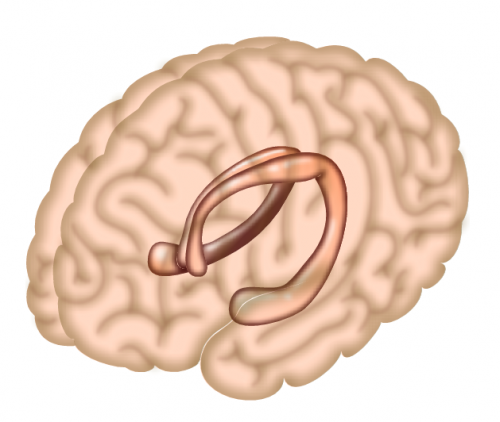October 2, 2015 report
Study sheds light on role genes play in memory retention

(Medical Xpress)—A combined team of researchers from the Institute for Basic Science and Seoul National University, both in South Korea, has found three types of repressive regulations in the hippocampus of mice that impact memory retention. In their paper published in the journal Science, the team outlines the study they conducted, their findings and suggest that what they learned highlights the importance of negative gene regulation in learning and memory.
Scientists have known for some time that the expression and translation of some genes is involved in forming memories—though not which ones . In this new study, the team sought to narrow down the possibilities by studying both in mice during the memory formation process.
To gain a better idea of how genes are involved in the memory making process, the researchers trained several mice to fear being put into a cage, by administering electric shocks. They then killed the mice after differing amounts of time had passed (five minutes, ten minutes , a half hour and at four hours) and performed RNA sequencing and ribosome profiling on the hippocampus, a part of the brain known to play a major role in memory retention. Doing so led to the identification of 104 genes that deviated from a control group, each with either translation or transcription differences.
In studying the data, the researchers found three types of repressive regulation going on with the genes; the first was with the suppression of ribosomal protein-coding genes, the second was in early translation repression of specific genes, and the third was longer term suppression that occurred later in a subgroup of genes by way of inhibition of estrogen receptor 1 (ESR1/ERα) signaling. They also found that causing genes to overexpress resulted in less memory retention as did forcing activation of ESR1—the latter suggests the receptor plays an essential role in gene regulatory systems in the brain.
The findings by the team suggest that one of the major functions of genes in memory retention is their suppression to prevent too much information being stored. This suggests that genes in the hippocampus play a key role in filtering out information that surrounds a learning event, so that the brain will not be overfilled with unnecessary data.
More information: Multiple repressive mechanisms in the hippocampus during memory formation, Science 2 October 2015: Vol. 350 no. 6256 pp. 82-87 DOI: 10.1126/science.aac7368
ABSTRACT
Memory stabilization after learning requires translational and transcriptional regulations in the brain, yet the temporal molecular changes that occur after learning have not been explored at the genomic scale. We used ribosome profiling and RNA sequencing to quantify the translational status and transcript levels in the mouse hippocampus after contextual fear conditioning. We revealed three types of repressive regulations: translational suppression of ribosomal protein-coding genes in the hippocampus, learning-induced early translational repression of specific genes, and late persistent suppression of a subset of genes via inhibition of estrogen receptor 1 (ESR1/ERα) signaling. In behavioral analyses, overexpressing Nrsn1, one of the newly identified genes undergoing rapid translational repression, or activating ESR1 in the hippocampus impaired memory formation. Collectively, this study unveils the yet-unappreciated importance of gene repression mechanisms for memory formation.
© 2015 Medical Xpress



















